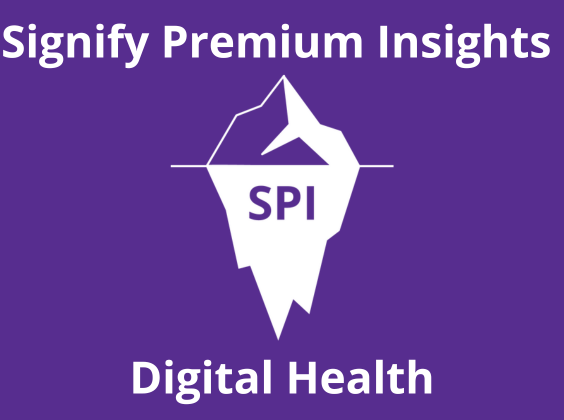
Written by

Cranfield, UK, 8th July 2024, Written by Arun Gill –
Hello everyone! There were several key announcements last month across EHR and healthcare IT, including multiple vendor acquisitions.
CGM Acquires Norwegian Vendor Pridok
Leading European EHR vendor CompuGroup Medical SE & Co. KGaA’s acquisition trail continued last week with the purchase of Norwegian software vendor Pridok AS. The deal is valued at EUR 35.7m.
Pridok was founded 11 years ago and its web-based ambulatory information system (AIS) Pridok EPJ (EHR) is used by GPs across Norway. Its 2023 revenues were estimated at just over EUR 4m, representing strong annual growth of 32%.
The deal signals further consolidation in the Norwegian ambulatory EHR market; this is the second acquisition within this segment in recent times, following Nordic vendor EG A/S‘s acquisition of local software vendor Patientsky (which also included the businesses Hove Medical Systems, Infodoc, Patientsky Clinic and PatientSky App) last year.
As highlighted in a recent EHR Vendor Financials Q1 2024 SPI Digital Health insight, CGM’s AIS business unit revenues for the rolling 12 months were down 6% to EUR 721m. Pridok’s revenue alone will have little impact on this trend. However, CGM’s expanded portfolio does lay the foundation to compete with EG and presents further growth opportunities, such as offering its Nordic ambulatory customers a web-based solution.
Health Catalyst Acquires Oncology IT Vendor Carevive
Health Catalyst secured its second oncology IT deal in the last six months by acquiring post-diagnosis oncology platform vendor Carevive.
Rooted in analytics, care management and workflow tools, Carevive is a classic Health Catalyst acquisition. Alongside its move for cancer registry software and services vendor Electronic Registry Systems (ERS) last November, it’s also one that makes a determined play in the growing oncology care market. Carevive’s platform is used by oncology care providers and life sciences researchers in the US to help them plan daily treatments, screen clinical trials, coordinate care, conduct remote patient monitoring and deliver post-treatment care.
The Oncology IT space is gaining traction and increasingly becoming more competitive. Currently, there’s Carevive in oncology care management, as well as radiation oncology platform vendors Varian (Siemens Healthineers) and Elekta, which announced the acquisition of Philips‘ Healthcare’s Pinnacle Treatment Planning System portfolio in May. Earlier this year GE HealthCare acquired radiology oncology vendor MIM Software .
Greater focus on care pathways has resulted in vendor purchasing increasingly consolidating around “oncology” as a strategy. The GE and Health Catalyst deals are examples of a rising acquisitive strategy adopted by the larger health tech vendors. The expectation is for vendors focusing on Oncology IT post-diagnosis to capture a larger share of care pathways, thus more revenue opportunities across larger deals which lock providers into long-term contracts.
Legislation and the growing value-based care movement in the US are also fueling the oncology IT market. For example, simple CPT codes have been expanded to cover navigation and care management services in oncology, opening up new ways for oncology practices to secure a return on their investments.
I’m currently updating the second iteration of Signify Research’s Oncology IT – World – 2024 report. We welcome further conversations on the trends impacting the market.
Oracle Health Launches Clinical Digital Assistant
Last week, Oracle Health made its Clinical Digital Assistant tool – the latest upgrade to its EHR – available to its existing US ambulatory care EHR customers. This follows a ‘soft’ launch last September for select ambulatory and primary care practices in the country.
According to Oracle Health, its tool automates documentation and synchronises it with the patient’s medical record. This removes the arduous and time-consuming process of copying and pasting notes into the record, reducing pressure on staff.
Whilst there appears to be a lot of hype and energy around gen AI and ambient listening, the reality is that providers are taking time to consider the various solutions on the market. Although a ‘nice to have’ with obvious advantages for the provider and its resources, these solutions are still not seen as a critical part of a provider’s toolbox. This is changing, however, as healthcare providers allocate specific budgets for these solutions. Editor Mark Lazell provides a deeper analysis in his SPI Digital Health insight.
athenahealth’s New Speciality Care Solutions
Ambulatory EHR vendor athenahealth unveiled two speciality care solutions; athenaOne for Women’s Health (Obstetrics) and athenaOne for Urgent Care. These are designed to offer providers an alternative to the larger generalist as well as smaller speciality-specific vendors that have traditionally dominated this space.
The two new offerings included in the athenaOne cloud-based practice management platform will offer practices the full EHR, revenue cycle management and patient engagement software.
The US ambulatory EHR market has become increasingly consolidated, with independent practices being swallowed up by the large IDNs and hospital systems, and larger IDN-focused EHR vendors (e.g. Epic ) gaining share; opportunities for ambulatory-only EHR vendors are decreasing. Therefore, this announcement represents a much-needed new direction for athenahealth. The departure from the ‘one-size-fits-all’ approach that the vendor adopted with its EHR until relatively recently now lies at the heart of its ‘simplifying healthcare’ mantra for 2024.
athenahealth must now build momentum. Following obstetrics and urgent care, the company has confirmed that it will launch a behavioural health bolt-on module to its EHR platform, though a date has not yet been confirmed. This will complement existing specialities it has in its EHR portfolio including Front Door (a general practice offering), Federally Qualified Health Care (FQHC) and Ambulatory Surgery Centres (ASCs). Click here for the full analysis in this SPI Digital Health insight.
InterSystems Unveils GenAI and Interoperability Solutions
Earlier in June, the InterSystems community gathered for its annual Global Summit and showcased several new capabilities for its TrakCare and HealthShare solutions.
Available this summer, the vendor unveiled its Health Gateway Service, delivering near real-time access to patient data from national information sharing networks (e.g. eHealth Exchange and CommonWell). This will provide a single, comprehensive view of a patient’s medical history, in chart format within clinician workflows.
By end-2024, the vendor plans to make an AI-enabled ambient assistant available in its TrakCare platform. It also unveiled AI co-pilot for its HealthShare Unified Care Record, providing clinicians with a chat-based experience for locating information within a patient’s medical history. Also of note was HealthShare Co-Creator, an AI-powered dashboard for HealthShare Clinical Viewer, which delivers a longitudinal representation of the patient and member record. The vendor claims this feature will enable users to configure and personalize the clinician’s view of patient records, leading to a more user-friendly experience.
Signify Research Ltd‘s EHR/EMR Market Intelligence Service provides rolling 12-month coverage of the global market in both acute and ambulatory applications. For more information, click below:
Signify Premium Insights requires a subscription, but I am happy to provide you with a free, no-obligation, 30-day trial.
About the Author
Arun joined Signify Research in 2019 as part of the Digital Health team focusing on EHR/EMR, integrated care technology and telehealth. He brings with him 10 years’ experience as a Senior Market Analyst covering the consumer tech and imaging industry with Futuresource Consulting and NetGrowth Consultants. Prior to this he worked for Nortel Networks. In his spare time, Arun has a passion for playing sports, supporting Manchester United, and entertaining his two children.
About the Digital Health Team
Signify Research’s Digital Health team provides market intelligence and detailed insights on numerous digital health markets. Our areas of coverage include electronic medical records, telehealth & virtual care, remote patient monitoring, high-acuity clinical information systems, patient engagement IT, health information exchanges and integrated care & value-based care IT. Our reports provide a data-centric and global outlook of each market with granular country-level insights. Our research process blends primary data collected from in-depth interviews with healthcare professionals and technology vendors, to provide a balanced and objective view of the market.


